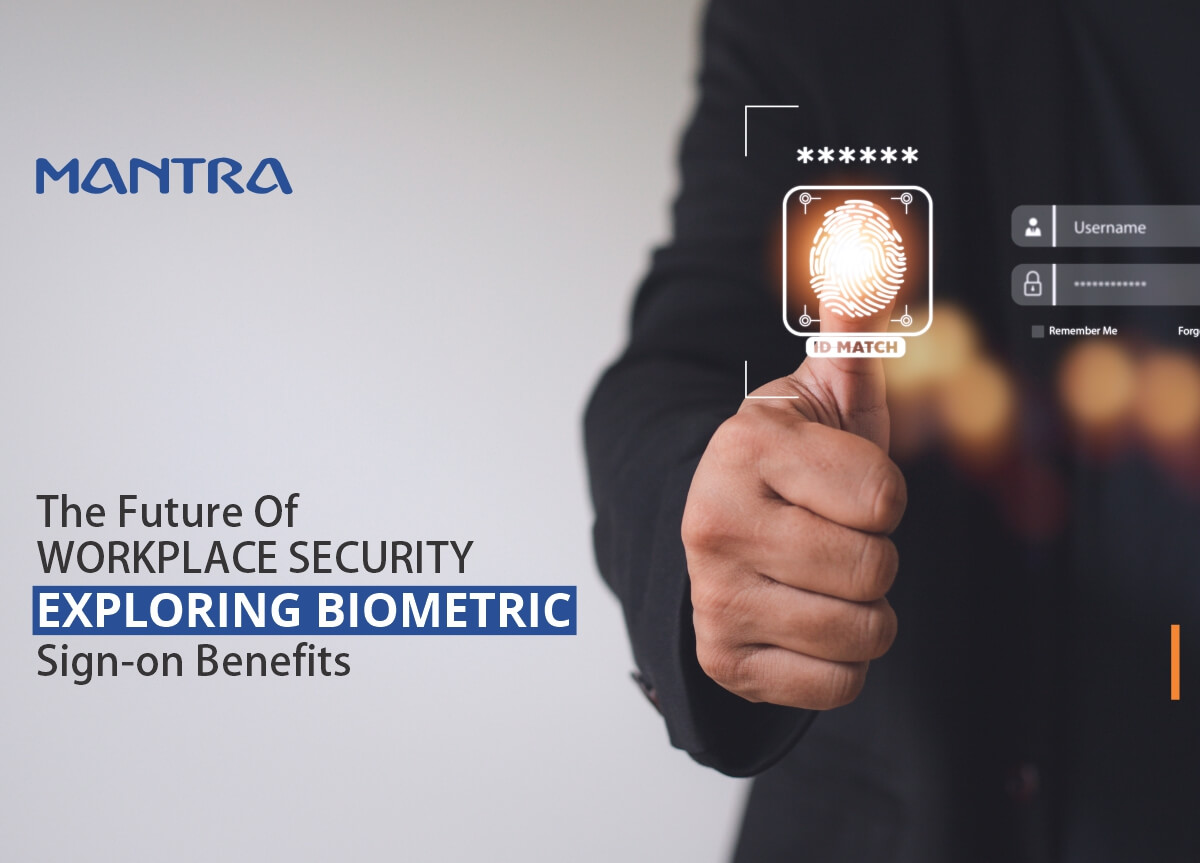
In today's rapidly evolving digital world, cyber security has become the utmost concern for companies. Workplace and business security now include not only physical protection but also digital security. This is where biometric authentication comes in.
To achieve the goal of providing security in cyberspace and physical access control in the workplace and office environment, biometric sign-on is most preferred in the current scenario. It refers to the use of physiological or behavioral traits for identification such as fingerprints or facial recognition. Let's dive deep into the use of biometric authentication in workplace security.
Stats that will compel you to turn the Biometric Sign-On side
Password authentication is outdated and becoming vulnerable day by day. Here are some eye-opening statistics that lead you to make a decision:
For workplace login security, passwords were the most commonly used type of authentication. But, according to Verizon's 2021 Data Breach Investigations Report, stolen or weak passwords were used in 61% of all data breaches in 2020.
The cyber security company, CheckPoint found that the security threat is due to the use of common passwords are a threat for security as 1234 and password.
Another survey conducted by BeyondTrust in 2020 found that 72% of respondents had witnessed at least one occasion where an employee had access to a system or data that they should not have had.
More businesses are adapting to Multi Factor Authentication (MFA) to increase security and lower the risk of cyberattacks.
Research by MarketsandMarkets indicates the global biometric technology market is predicted to increase at a CAGR of 20.2% from $27.37 billion in 2020 to $68.6 billion by 2025.
The Advantages of Biometric Sign-on
Biometric sign-on has various advantages over traditional methods like passwords. These are some examples:
Stronger Security:- Compared to more conventional authentication strategies like passwords, which are easily guessed or stolen, biometric authentication is far more secure. Biometrics are unique to every person and cannot be duplicated, making it far more challenging for unauthorized users to acquire access.
Ease of Use:- Additionally, biometric sign-on is a lot more efficient than conventional methods. Users may sign in quickly and easily with biometric authentication because they don't need to carry or remember any security tokens or passwords.
Improved Efficiency:- With biometric sign-on, employees can access secure systems quickly and easily, boosting their productivity and efficiency. Overall productivity can be increased as a result of streamlining the workflow.
How Biometric Sign-on Benefits in Workplace
Biometric sign-on has several benefits when it comes to workplace security. These include:
Prevention of Unauthorized Access:- Organizations can restrict unwanted access to sensitive data, spaces, and systems by mandating biometric authentication to access protected systems. By doing this, the likelihood of data leaks and cyberattacks is decreased.
ID document verification:- Biometrics can guarantee that the ID document is valid and belongs to the person who is presenting it. Ensuring that the data captured is accurate and current, can help to prevent errors and inaccuracies in ID document capture.
Improve payroll processing:- Biometric authentication can assist prevent payroll processing errors and disputes by ensuring that the right employee is submitting their time and attendance information. Additionally, reducing the time and effort needed to manually enter employee data, can help in accelerating the time and attendance process.
Improved Compliance:- Organizations may show their dedication to compliance and security by using biometric sign-on, which can help build trust with clients, stakeholders, and regulatory agencies.
Reduced Costs:- Biometric sign-on can help firms cut costs related to data breaches and cyber assaults, such as legal bills, damage control, and lost income, by lowering the chance of data breaches.
The Future of Biometric Sign-on in Workplace Security
Biometric sign-on is still in its early stages of adoption, but it is expected to grow rapidly in the coming years. The security and usability of biometric technology will only increase with time, making it a more appealing alternative for businesses wishing to increase workplace security. Biometric Sign-on is going to be part of every desktop in the office which eliminates the need for common punching devices.
Businesses that adopt biometric sign-on now will be in the lead and gain from the many benefits it provides. The increasing usage of biometrics will probably make it the norm for workplace security.
Conclusion
In conclusion, organizations aiming to increase workplace security can enjoy many advantages from biometric sign-on. It's a useful tool for businesses aiming to lower the risk of data breaches and cyber-attacks thanks to its robust security, simplicity of use, and increased efficiency.
sophia
thankyou for providing this useful information
Reply